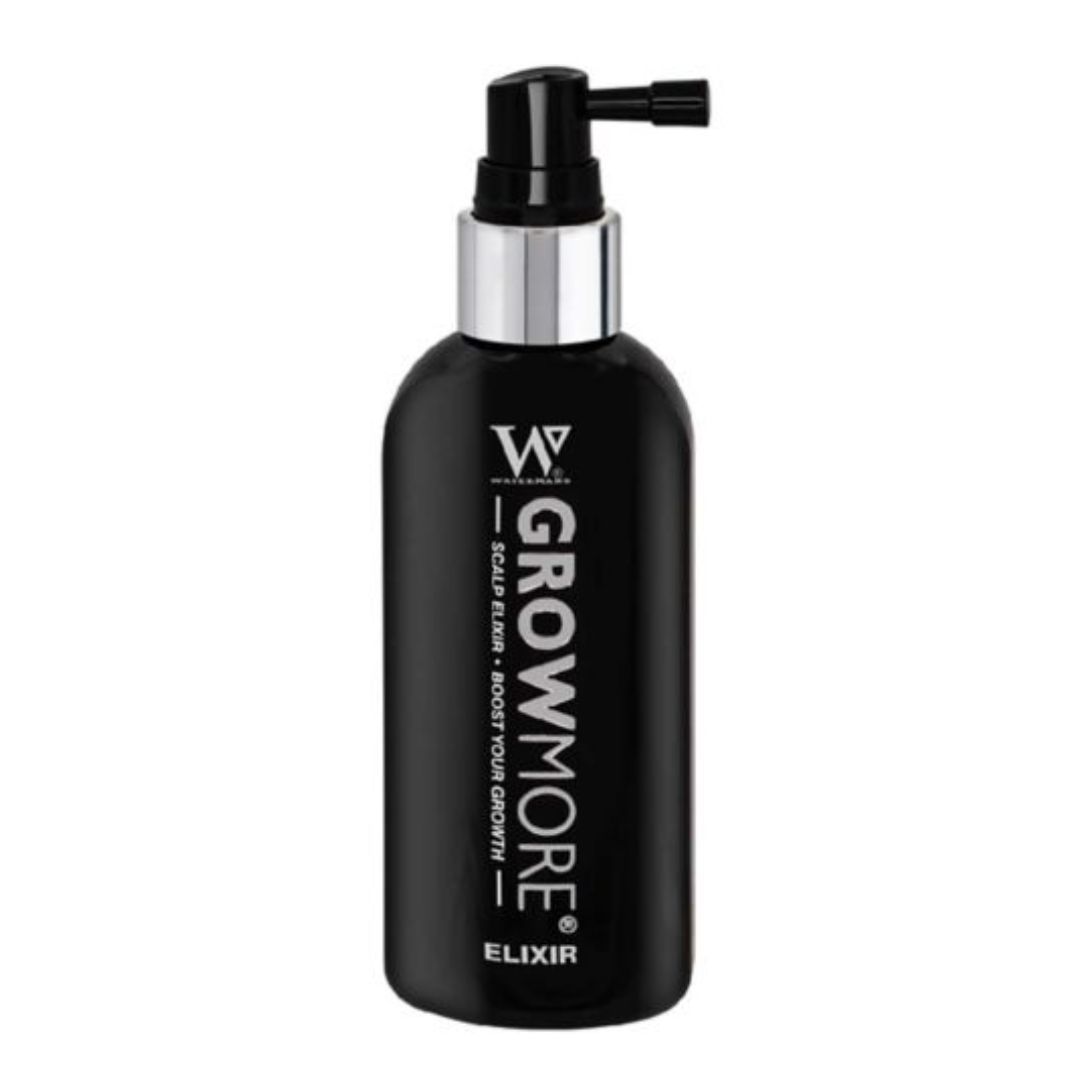I bored everyone with my hair texture saga— then I found out my thyroid wasn’t working properly
How much can your hair really tell you about your health?


Celebrity news, beauty, fashion advice, and fascinating features, delivered straight to your inbox!
You are now subscribed
Your newsletter sign-up was successful
It began innocently and absentmindedly enough. A yanked-out hair here, another there. Six months later, I had pulled out enough hair to create a noticeably wider centre parting and thinning around my hairline. Whenever I had a quiet moment or a hand free, I would subconsciously rake through my scalp, searching for one particular type of hair. On successfully finding it, I would pluck it out, stretching the hair taut between my fingers to examine it.
From the outside, my actions likely resembled trichotillomania, a hair-pulling disorder that can manifest as the compulsive plucking out of hair, body hair and eyelashes. Linked with obsessive-compulsive behaviours, trichotillomania can cause extreme emotional distress and permanent damage to the hair follicle and scalp. But I didn’t feel that this described my situation, although, admittedly there were similarities. I wasn’t picking my hair out to assuage a feeling of anxiety or satisfy a compulsive tendency, I was doing it because, seemingly overnight, many of my hairs had changed from soft and fine to wiry, coarse and brittle.
The next few months were marked by recurrent bouts of hair pulling and an apartment littered with strands of hair, some of which I’m embarrassed to admit I affixed to the refrigerator with a magnet so I could come back and inspect them again later. In conversation with friends, family and hairdressers, I would at some point mention this hair saga—fixated on the sudden and noticeable difference. The fact that it wasn’t caused by heat damage, bleaching or any other routine change unnerved me and made me re-evaluate almost everything in my life; from the haircare I used to the health of my hormones, sleep and supplement routine. All to answer the question: what is causing my hair to feel so brittle and coarse? A routine blood test some months later would clear things up.
What can your hair tell you about what’s going on inside your body?
Some changes to your hair are nothing to feel concerned over. In fact, the texture of your hair will naturally change as you age and can be caused by the beginning of the greying (whitening) process as these hairs have a naturally rougher, drier feel to them. However, similar to your nails, your hair can also indicate vitamin deficiencies and chronic conditions, as well as underlying health concerns.
"Our hair is an excellent barometer of general health, and changes in the hair can often be the first sign of an underlying problem," explains Zoe Passam, consultant trichologist at Philip Kingsley. "This is because hair is non-essential tissue and, so, the body will not prioritise the hair follicle for nutrients and resources—reserving them instead for vital body functions."
When your body is under stress, it will naturally reroute resources to wherever needs them most at that time, bypassing your hair in the process. This can cause a change in how the hair functions and grows from the scalp. "Examples of health problems that can cause hair loss are iron deficiency and thyroid dysfunction. Another example is crash dieting, which can leave insufficient nutrients for normal hair follicle function," says Passam. “Obviously external factors, such as colouring, bleaching, relaxing, perming and heat styling, can also lead to changes in the look and feel of the hair."
In my case, blood testing revealed that my body was struggling with an underactive thyroid and iron deficiency and had been for some time—the changes in my hair reflecting the stress of this internal struggle. But, these changes could have also been caused by hormonal imbalances, something that affects some women with PCOS or experiencing symptoms of menopause.
Celebrity news, beauty, fashion advice, and fascinating features, delivered straight to your inbox!
"Some types of hair loss are associated with conditions that can lead to hormone imbalance. A good example of this is polycystic ovary syndrome, which can be associated with raised testosterone levels, which in turn can lead to hair thinning in the top region of the scalp, evident as a wider parting and more visible scalp," explains Passam.
Dr Jolene Brighten, a naturopathic endocrinologist explains more: "As I share in my book, Is This Normal, hair strands that are becoming visibly thinner can point to elevations in a form of testosterone known as dihydrotestosterone or DHT. If you’re noticing hair loss on your head, along with thinning of the lateral third of your eyebrows, this could point to low thyroid hormone. Experiencing hair loss is often hormone related, which is why it’s important to discuss this with your provider. As we transition through perimenopause and into menopause, we can also see hair loss due to the decline of estrogen with persistent levels of testosterone."
What other factors can cause a change in hair texture?
Your hair is subject to a number of processes, some internal and many external. The things we do to our hair can all have an impact. Overprocessing the hair with dye and bleach, as well as heat damage caused by high temperatures over sustained periods of time, can create stress within the hair shaft, leading to breakage, dryness and a change in texture.
There are less obvious causes too. Elastic hair bands can create tension and cause breakage, as well as wearing your hair in styles that are too tight on the scalp - something that, when done too frequently, can lead to hair loss and thinning patches. Small changes, such as using a scrunchie or piece of fabric to loosely tie your hair while you sleep, or minimising the time you spend using heat can help to mitigate the damage and allow your hair to recover. Bond-repairing products, like Olaplex or K18, are also a viable option to help restore your hair if it’s damaged from heat or colour treatments.
Scalp conditions can also lead to changes in your hair density and texture. "Seborrheic dermatitis causes itchy, red and flaky scalps and you’ll notice your scalp become tender with rashes, redness and burning," describes Watermans Hair trichologist, Nick Fisherman. "This will change the overall texture of your hair and could lead to hair loss. It could also mean your hair follicles are damaged or in need of extra care." Fisherman recommends the Grow More Hair Elixir, a leave-in treatment to restore scalp condition.
What changes to your hair indicate a need to see a medical professional?
Some changes to your hair texture or density are indicative of larger issues that need qualified advice, especially when taken into account alongside other symptoms.
"If you’re experiencing changes in your hair along with other symptoms like fatigue, brain fog, joint pain, or generally feeling unwell, it's important to schedule an appointment with your [healthcare or medical] provider," recommends Dr Brighten.
Morgan Fargo is a freelance beauty editor and wellness journalist who has worked extensively on creating beauty and lifestyle content for titles such as Stylist Magazine, Women's Health Magazine, Harper's Bazaar, Elle and more.

